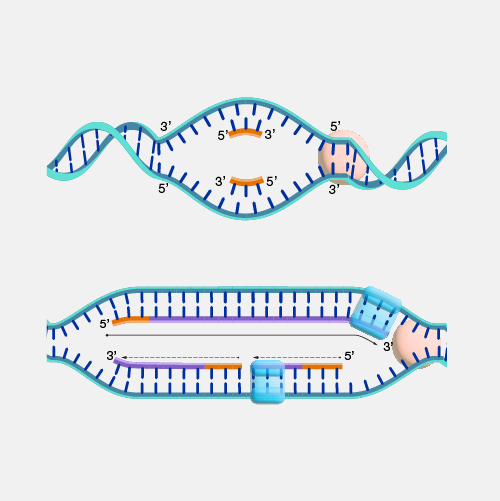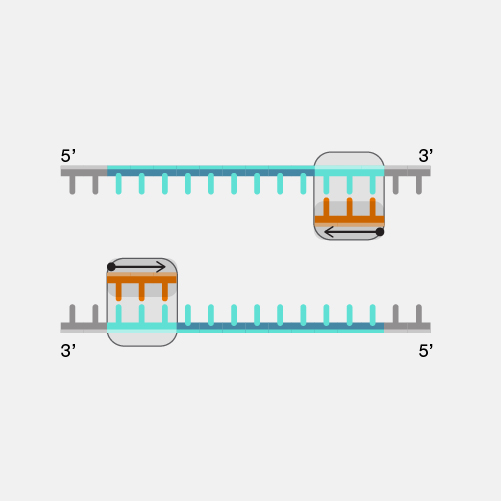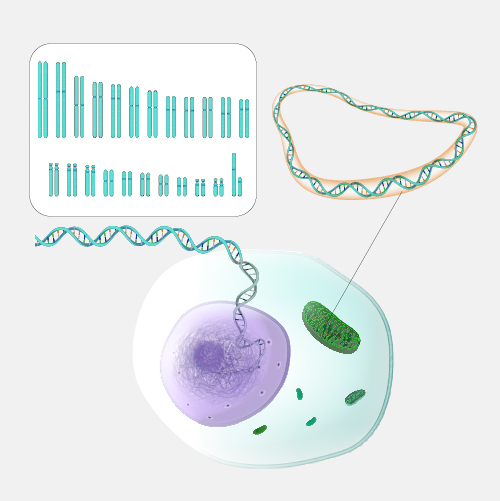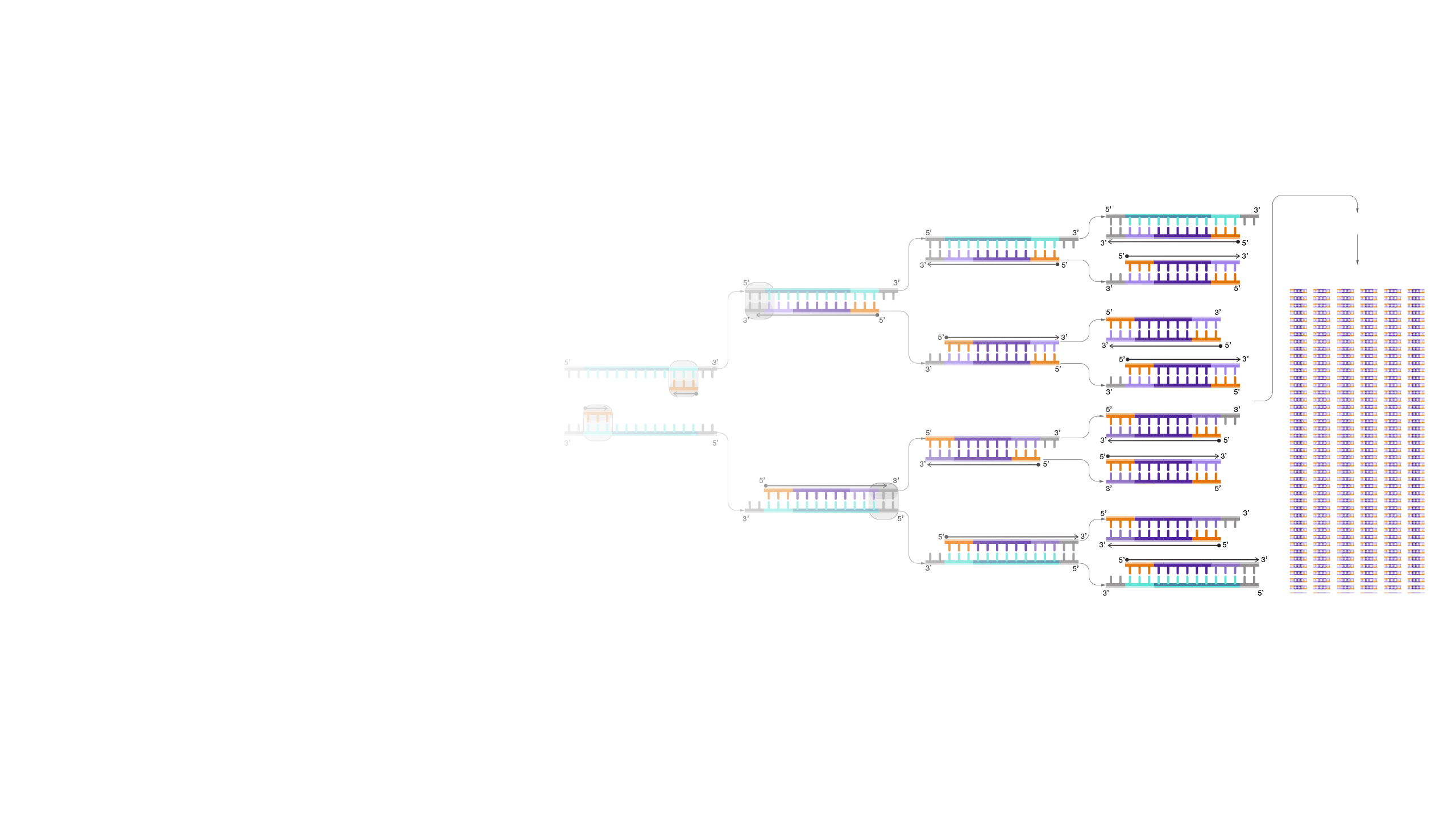
Polymerase Chain Reaction (PCR)
Definition
Polymerase chain reaction (abbreviated PCR) is a laboratory technique for rapidly producing (amplifying) millions to billions of copies of a specific segment of DNA, which can then be studied in greater detail. PCR involves using short synthetic DNA fragments called primers to select a segment of the genome to be amplified, and then multiple rounds of DNA synthesis to amplify that segment.
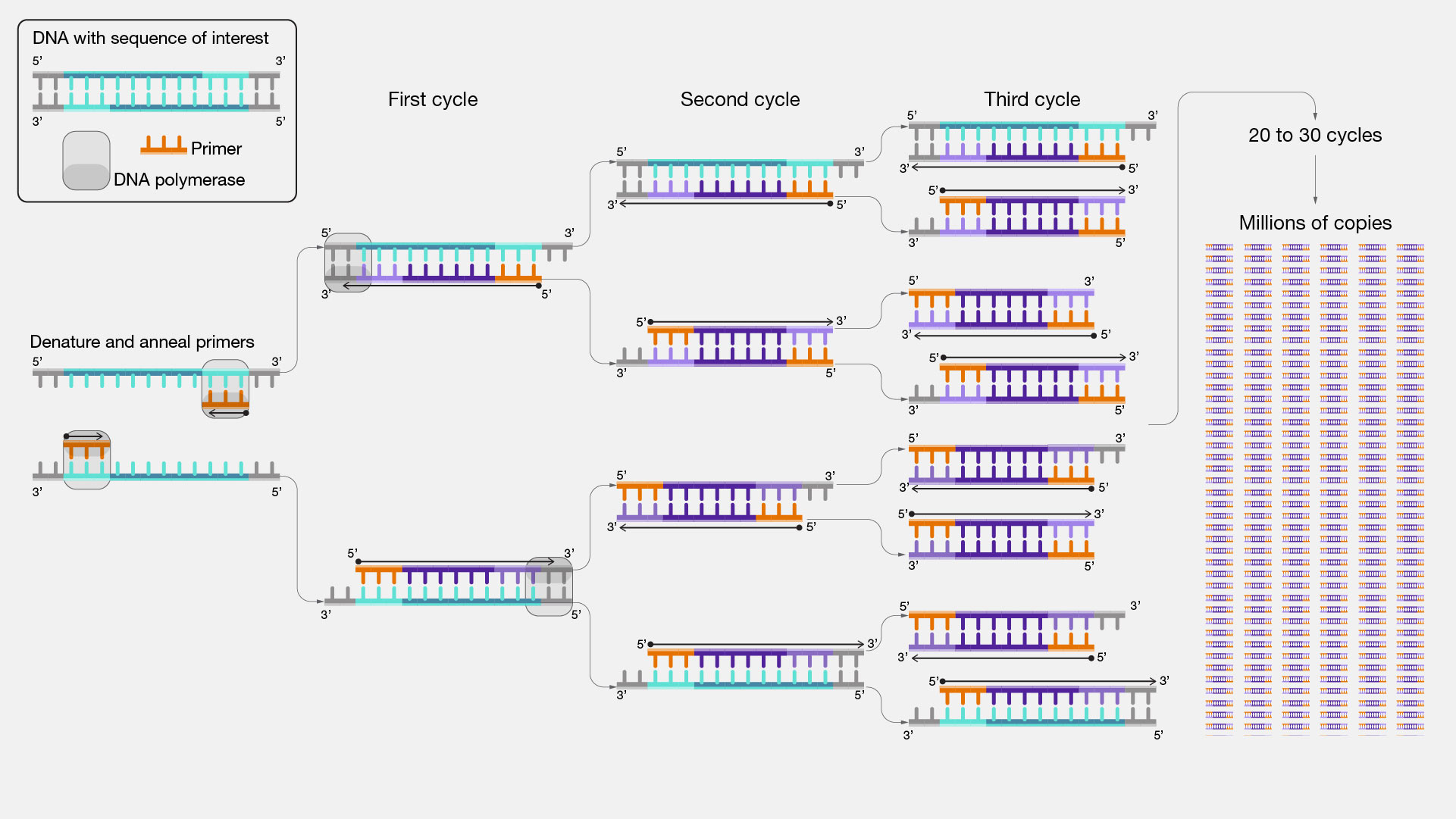
Narration
Polymerase chain reaction, PCR. So PCR dates back to the mid-1980s, which is more or less the time when the Human Genome Project was being considered and then started at the end of that decade. PCR has been really fundamental to so much of biology and biomedical research since then. Since we're at the Genome Institute, it's worth noting that it was a fundamental technology behind the early days of the Human Genome Project. And it has played an important role up till today. And it's going to continue to play one for a long time, I suspect, although you never know — there's always another groundbreaking technology.



